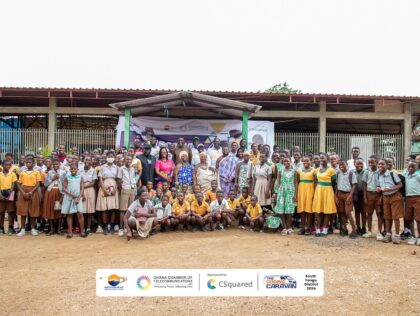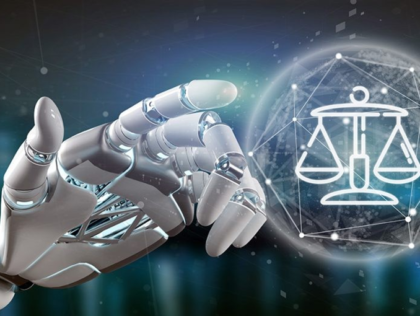Ghana’s Cybersecurity Act, 2020 (Act 1038) was passed by the Parliament of Ghana and assented by the President into law on December 29, 2020. It is made up of 100 sections and 3 schedules. This Act is to regulate cybersecurity activities in the country; promote the development of cybersecurity and provide for related matters. It further seeks to require or authorize the taking of measures to prevent, manage and respond to cybersecurity threats and incidents, to regulate owners of critical information infrastructure, to regulate cybersecurity service providers, and to make consequential or related amendments to certain other written laws.
Staying safe online requires safeguarding all categories of data not only from theft and damage but also from exploitation and abuse. This includes sensitive data, personally identifiable information, protected health information, personal information, intellectual property, data, and governmental and industry information systems. To this, child online protection (COP) develops key recommendations and standards to support the protection of children online by all key stakeholders. COP promotes a model national framework to assist in the development of a positive online environment for children and young people.
For this and subsequent articles, we shall look at issues relating to COP and its provisions outlined in sections 62, 63, through to 68, and section 87 which draws interesting insights to consider. The article is intended to educate and create awareness by providing key highlights and issues of interest from the act and does not seek to interpret the act.
Protection of Children Online
Children are spending more time online than ever before. 7 out of 10 children/adolescents use the internet for learning; two in five children in Ghana have received messages containing sexual content on their phones at least once during the past year; 4 out of 10 children/adolescents have seen sexual images while online—UNICEF.
In recent times, the coronavirus pandemic gave us all more reasons to stay online. Children have been learning and engaging online through computers, smartphones, gaming consoles, and televisions accessing the internet, and rightly has the potential to broaden horizons and ignite creativity all over the space. But with these opportunities come serious risks, hence the need for protecting children online. Below are key highlights of Act 1083.
Section 62: Indecent image and photograph of a child
It is important to note that the possession of material depicting indecent images of children is a serious criminal offense in Ghana and globally. This section prohibits a person from taking or permitting to be taken an indecent image or photograph of a child; produce or procure an indecent image or photograph of a child for the purpose of the publication of the indecent image or photograph through a computer system; publish, stream, including live stream, an indecent image or photograph of a child through a computer or an electronic device; or possess an indecent image or photograph of a child in a computer system or on a computer or electronic record storage medium.
Here, indecent materials not allowed to part away, or give, share or offer include any visual representation such as videos and animations, audio, text, drawings, depicting a child engaged in sexually explicit or suggestive conduct; a person who appears to be a child engaged in sexually explicit or suggestive conduct; images representing a child engaged in sexually explicit or suggestive conduct; or sexually explicit images of children.
Section 63: Dealing with a child for purposes of sexual abuse
Forms of child sexual abuse include engaging in sexual activities with a child (whether by asking or pressuring or by other means), indecent exposure (of the genitals, female nipples, etc.). This section states, a person shall not use a computer online service, an internet service, a local bulletin board service, or any other device capable of electronic data storage or transmission to seduce, solicit, lure, groom or entice, or attempt to seduce, solicit, lure, groom or entice, a child or another person believed by the person to be a child, to facilitate, encouraging, offering, or soliciting unlawful sexual conduct of or with any child, or the visual depiction of such conduct.
Section 64: Aiding and abetting of child dealing for purposes of sexual abuse
An owner or operator of a computer on-line service, weblog, internet service, or internet bulletin board service shall not aid and abet another person for the purpose of facilitating or encouraging the online solicitation of a child; or permit any person to use the service of that person for the purpose of facilitating, encouraging, offering, or soliciting unlawful sexual conduct of or with a child, or the visual depiction of such conduct.
Does child prostitution online come to mind?
Section 65: Cyberstalking of a child
This section states a person shall not use a computer online service, an internet service, or a local internet bulletin board service, or any other electronic device to compile, transmit, publish, reproduce, buy, sell, receive, exchange, or disseminate the name, telephone number, electronic mail address, residence address, picture, physical description, characteristics, or any other identifying information on a child in furtherance of an effort to arrange a meeting with the child to engage in sexual intercourse, sexually explicit conduct, or unlawful sexual activity.
To clarify, “unlawful sexual activity” means a sexual activity characterized by a recurrent intense sexual urge of a person, a sexually arousing fantasy of a person, or the use of an object by a person resulting in the suffering or humiliation of that person, the partner of that person, a child, or any other non-consenting partner.
Section 66: Sexual extortion
Also known as sextortion, employs non-physical forms of coercion to extort sexual favours from the victim. Sextortion refers to the broad category of sexual exploitation in which abuse of power is the means of coercion, as well as to the category of sexual exploitation in which threatened release of sexual images, videos, or information is the means of coercion. In most cases, the offenders use the opportunity to ask for sexual favours and money. There are many unfortunate cases of females who have left school because of threats by a blackmailer to leak their nude photos and videos.
Section 66 prevents a person from threatening to distribute by post, email, text, or transmit, by electronic means or otherwise, a private image or moving images of the other person engaged in sexually explicit conduct; or an intimate image of a child engaged in sexually explicit conduct, with the specific intent to harass, threaten, coerce, intimidate or exert any undue influence on the person, especially to extort money or other consideration or to compel the victim to engage in unwanted sexual activity; or actually extort money or other consideration or compel the victim to engage in unwanted sexual activity.
An intimate image may include a depiction in a way that the genital or anal region of another person is bare or covered only by underwear; or the breasts below the top of the areola that is either uncovered or clearly visible through clothing.
In the next article on COP, we shall look at other online sexual offenses in sections 67 (Non-consensual sharing of intimate image), and 68 (Threat to distribute prohibited intimate image or visual recording). However, talking about the above without touching on matters of service providers will be incomplete, thus, section 87 (Blocking, filtering, and taking down of illegal content) will be discussed.
As Government commits to a safer digital Ghana campaign to address cybersecurity issues, we all have responsible roles to play as we stay online, and to support children and adolescents to use the internet in the most constructive and beneficial way.
Author: Richard Kafui Amanfu – (Director of Operations, Institute of ICT Professionals, Ghana)
For comments, contact richard.amanfu@iipgh.org or Mobile: +233244357006





